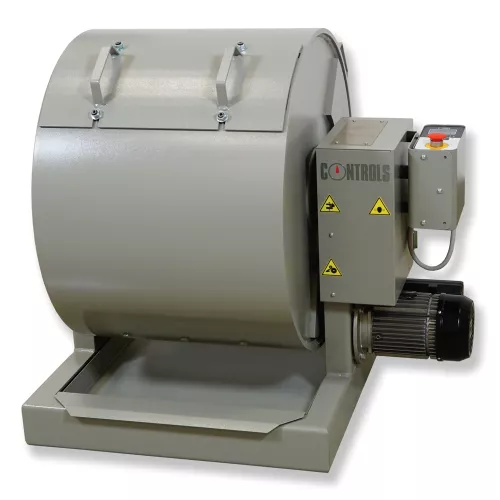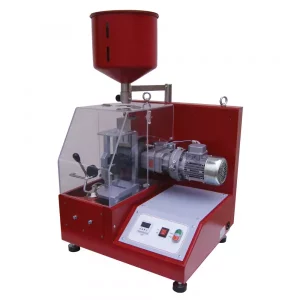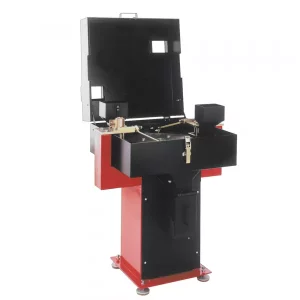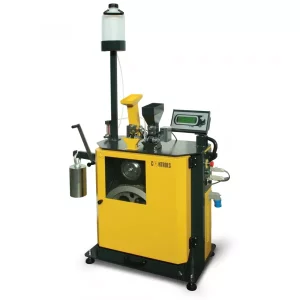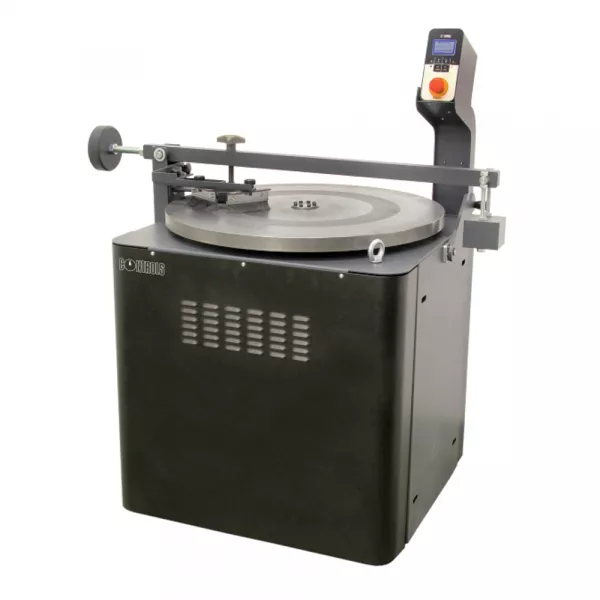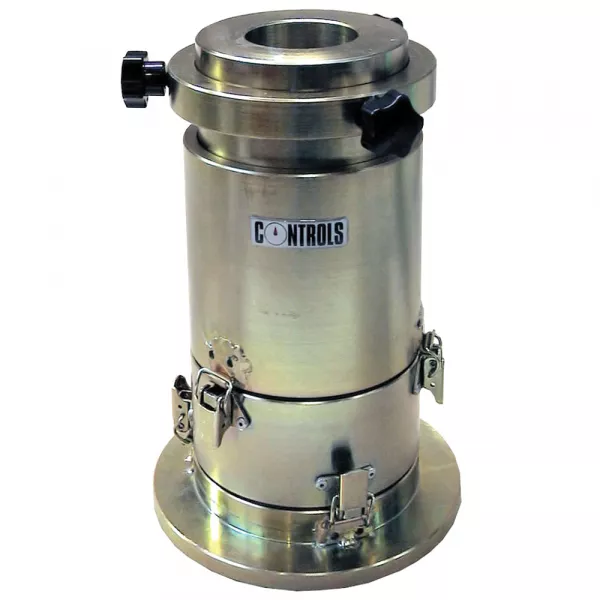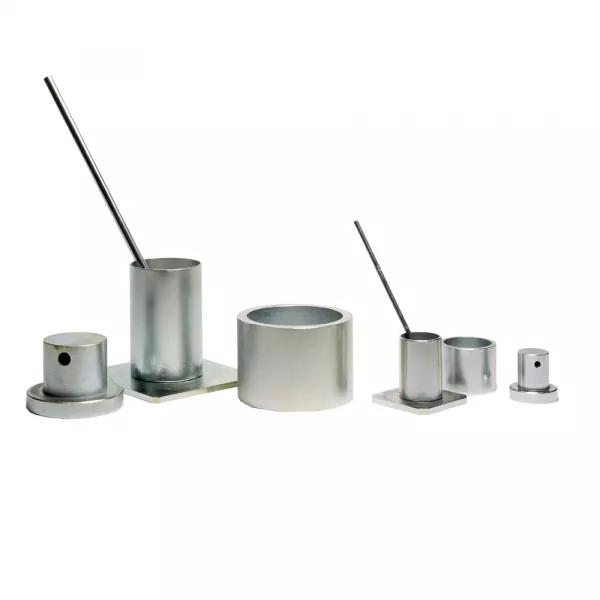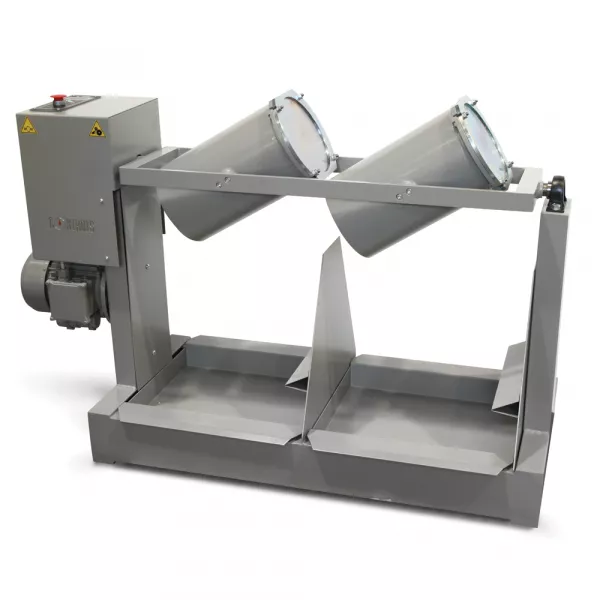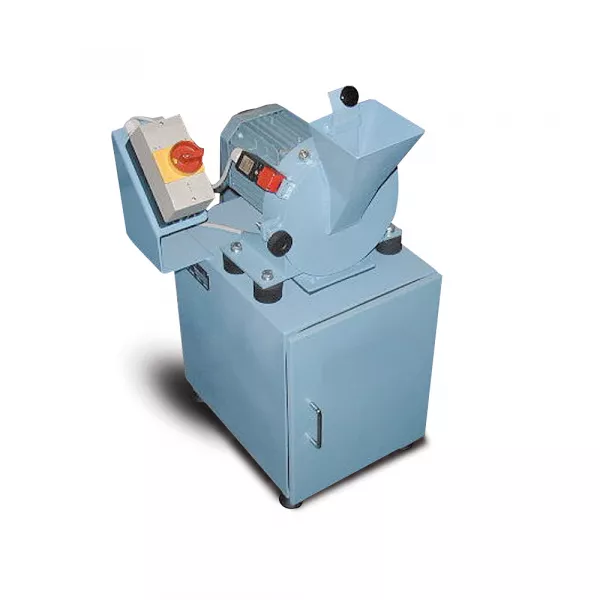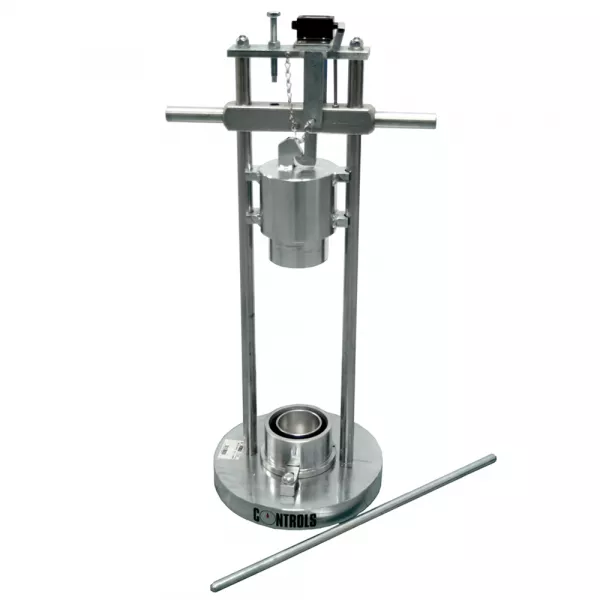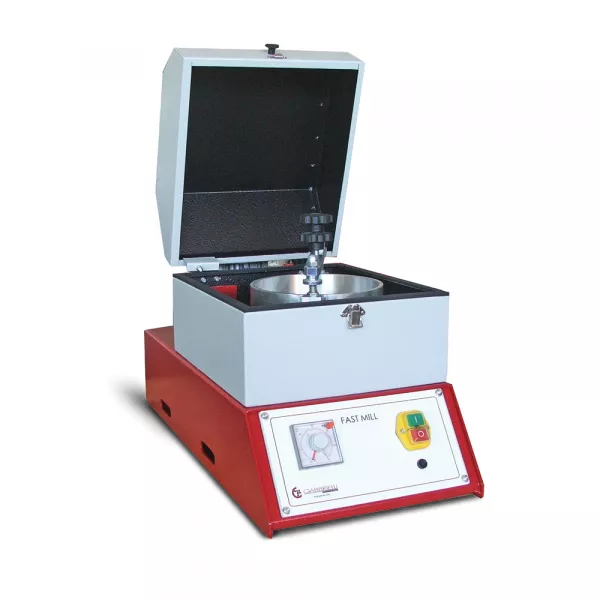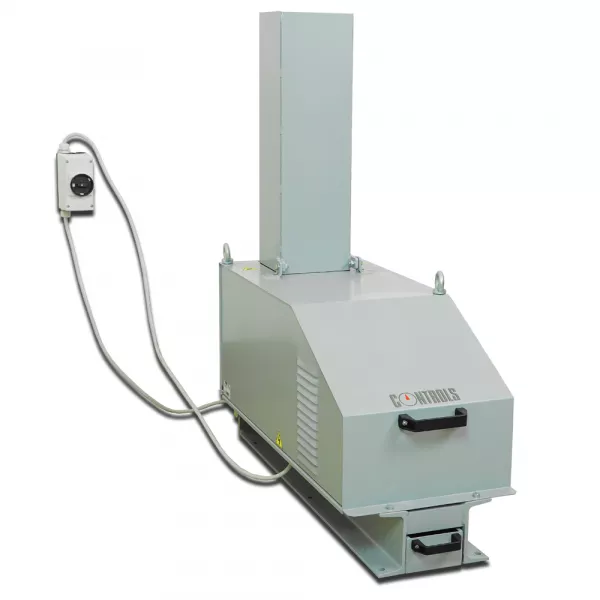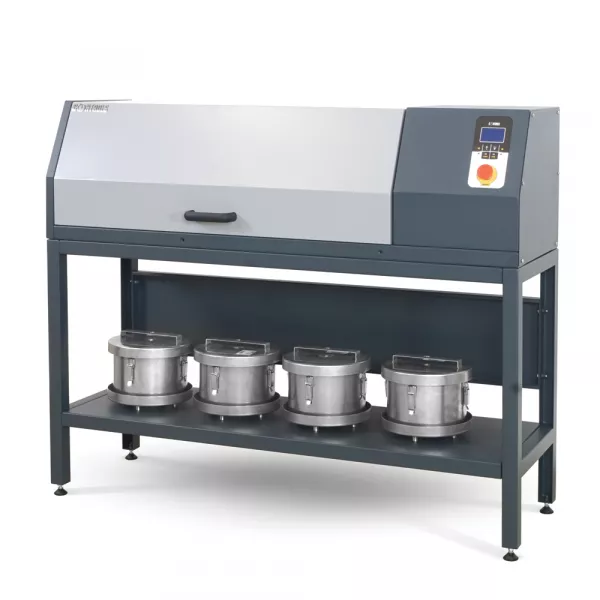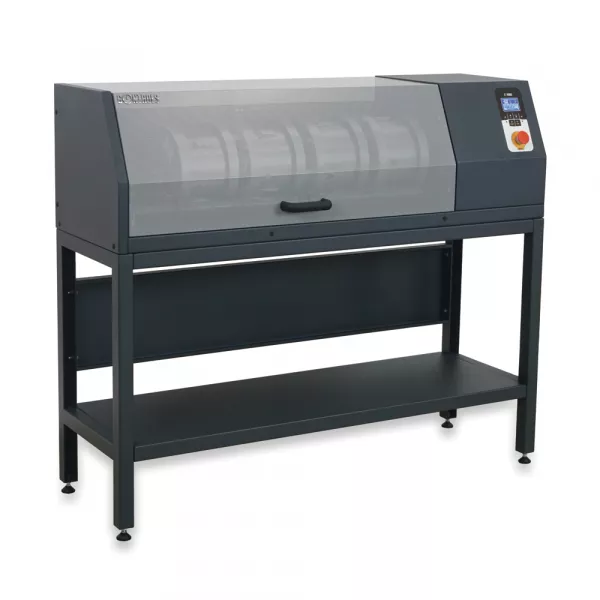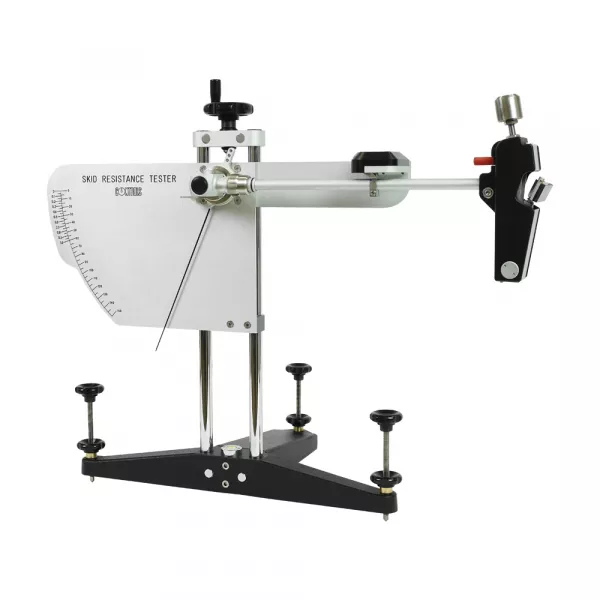The Polished Stone Value (PSV) of a material used as road surfacing is a measure of how rapidly it becomes polished under the action of vehicle tires. This machine is used to produce accelerate polishing, conforming to Standards, of stone chippings set onto the periphery of a special revolving wheel. After the cycle, involving two grades of emery powder, the polished specimens are tested on the skid tester (see links below) which gives the PSV, Polished Stone Value. The machine is electronically controlled by a keyboard with 4 row x 20 character LCD display. Complete with emergency stop button.
The machine is supplied complete with road wheel, side plate, rubber rings, two tired wheels, drive belt, abrasive feed mechanism, corn emery, flour emery, set of one specimen mould and one mould plate.
Main Features
- Fully conforming to EN 1097-8
- Advanced digital interface for programming test steps and pauses
- Independent control of the two feeders
- Digital control of speed rotation
- Full protection of all the moving part area with safety switch
- Removable water tank, easy refill
